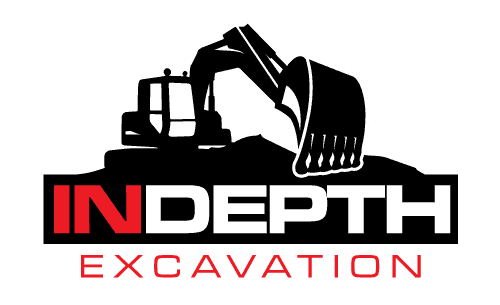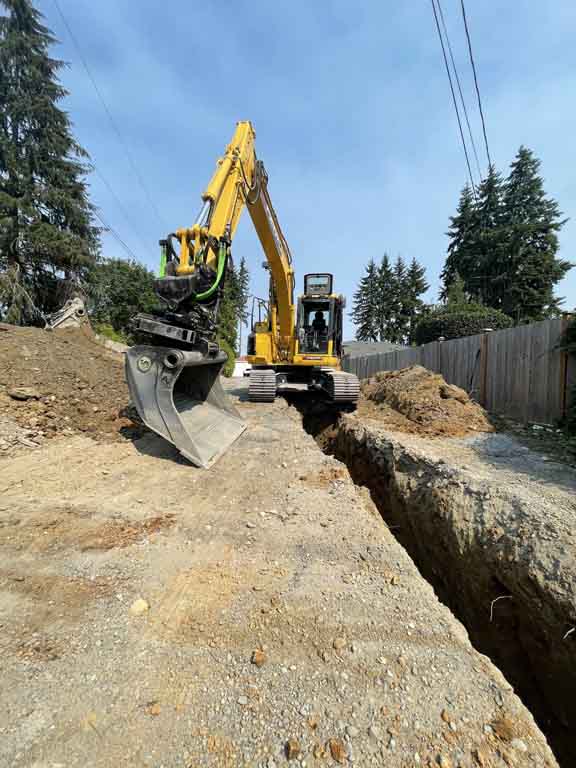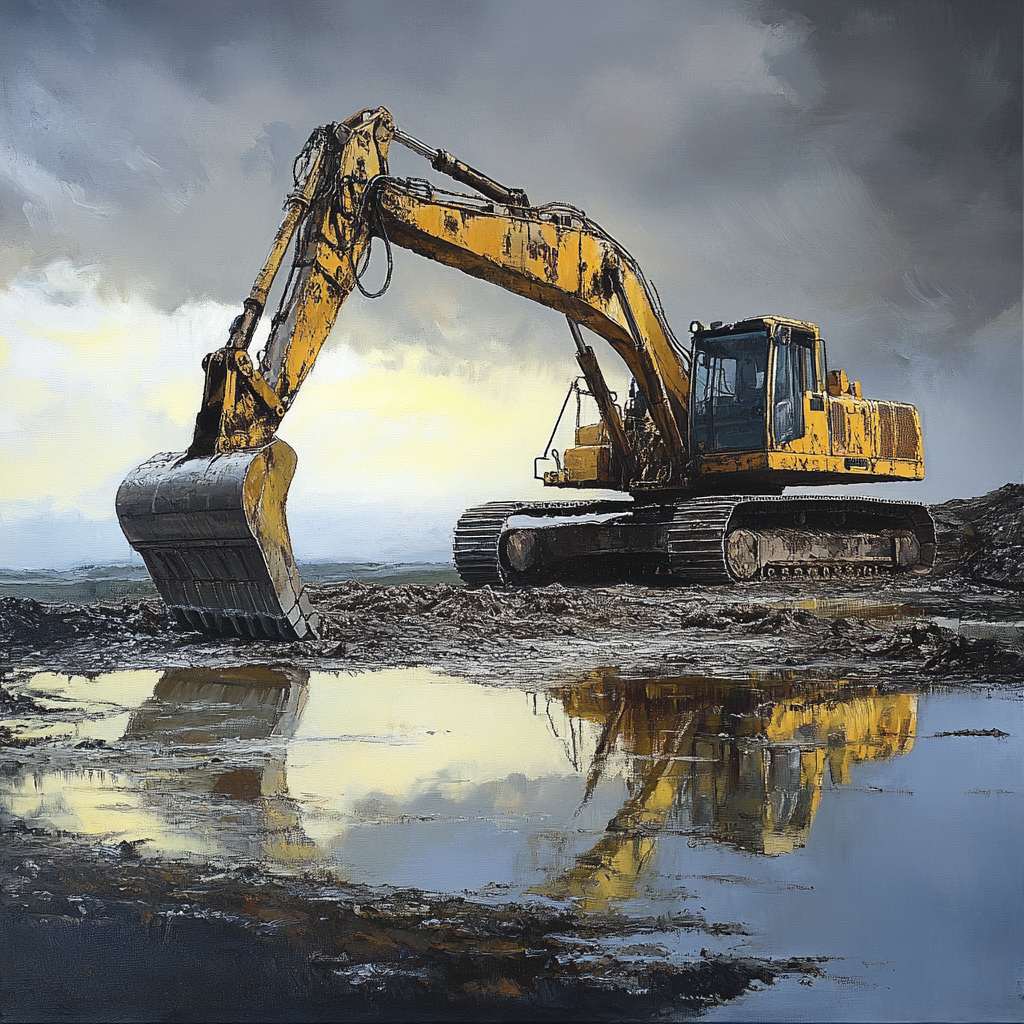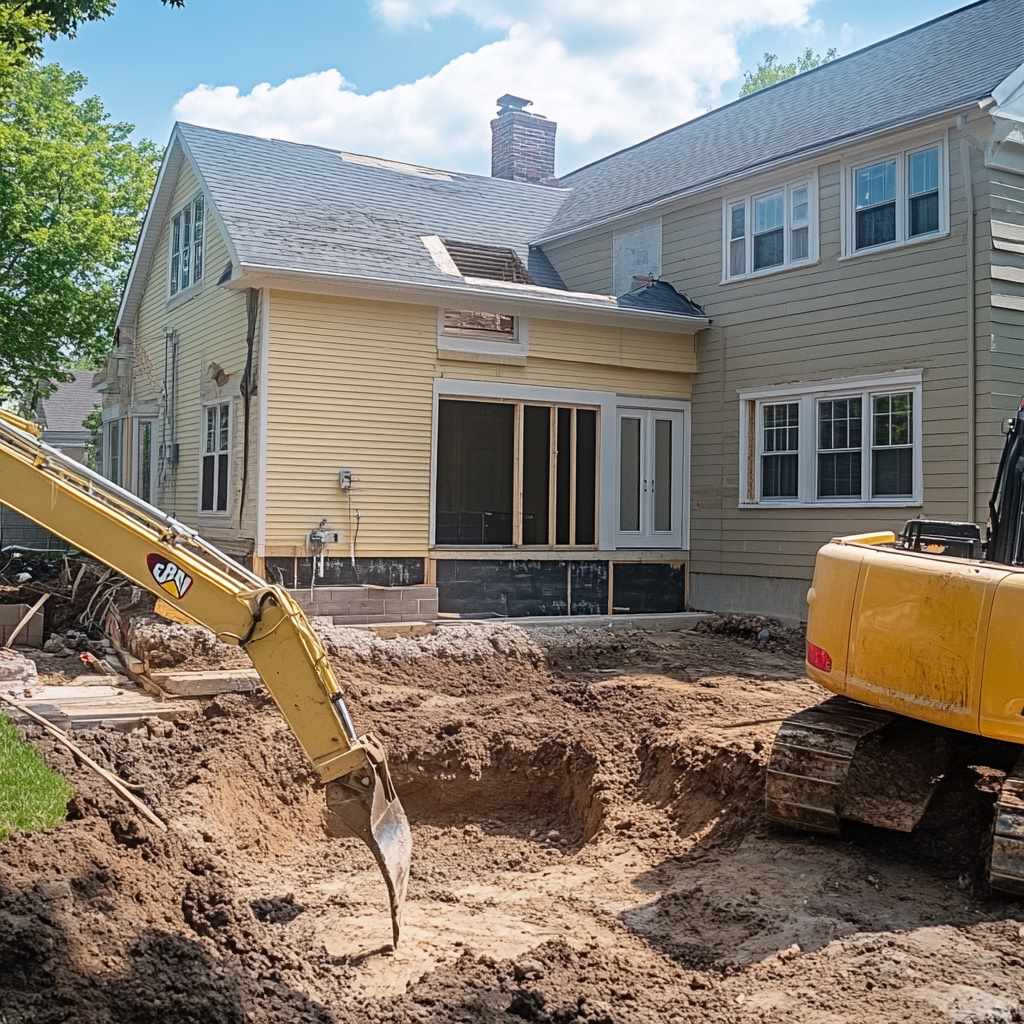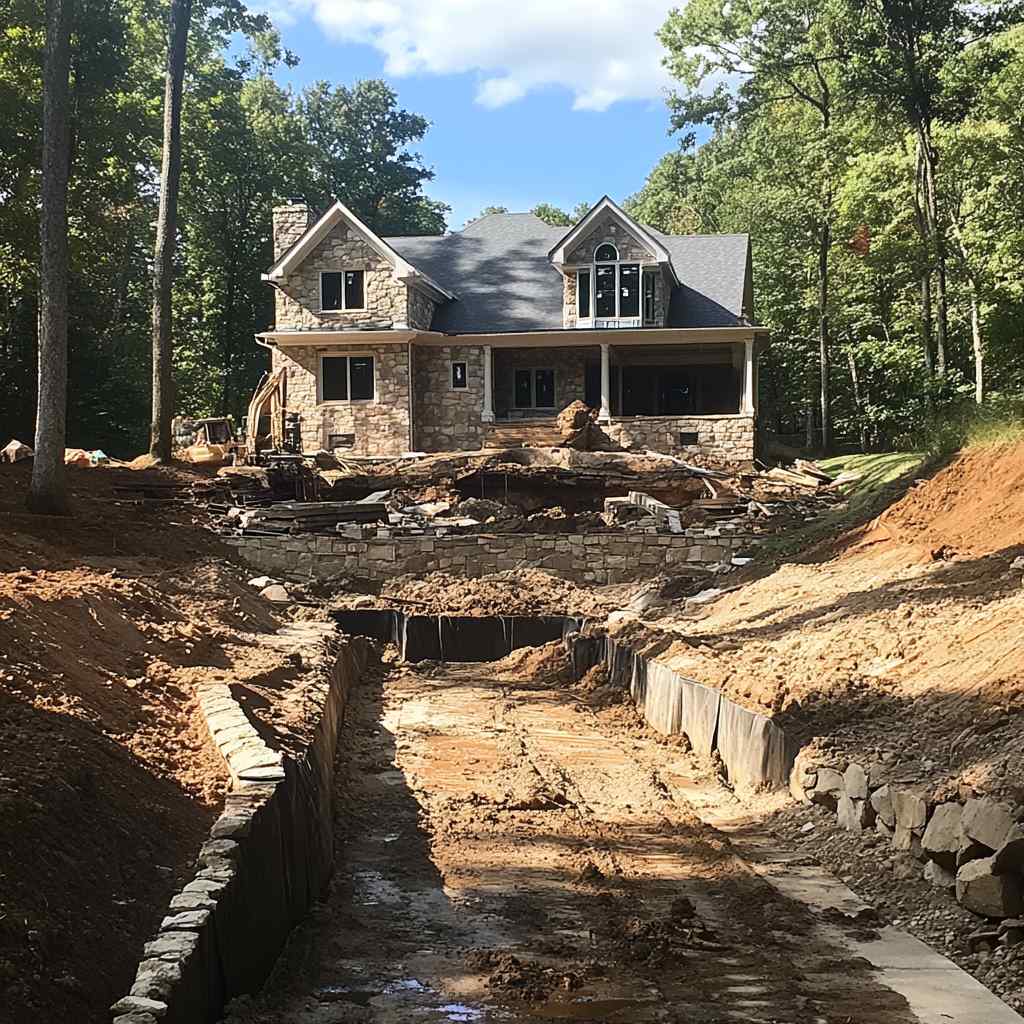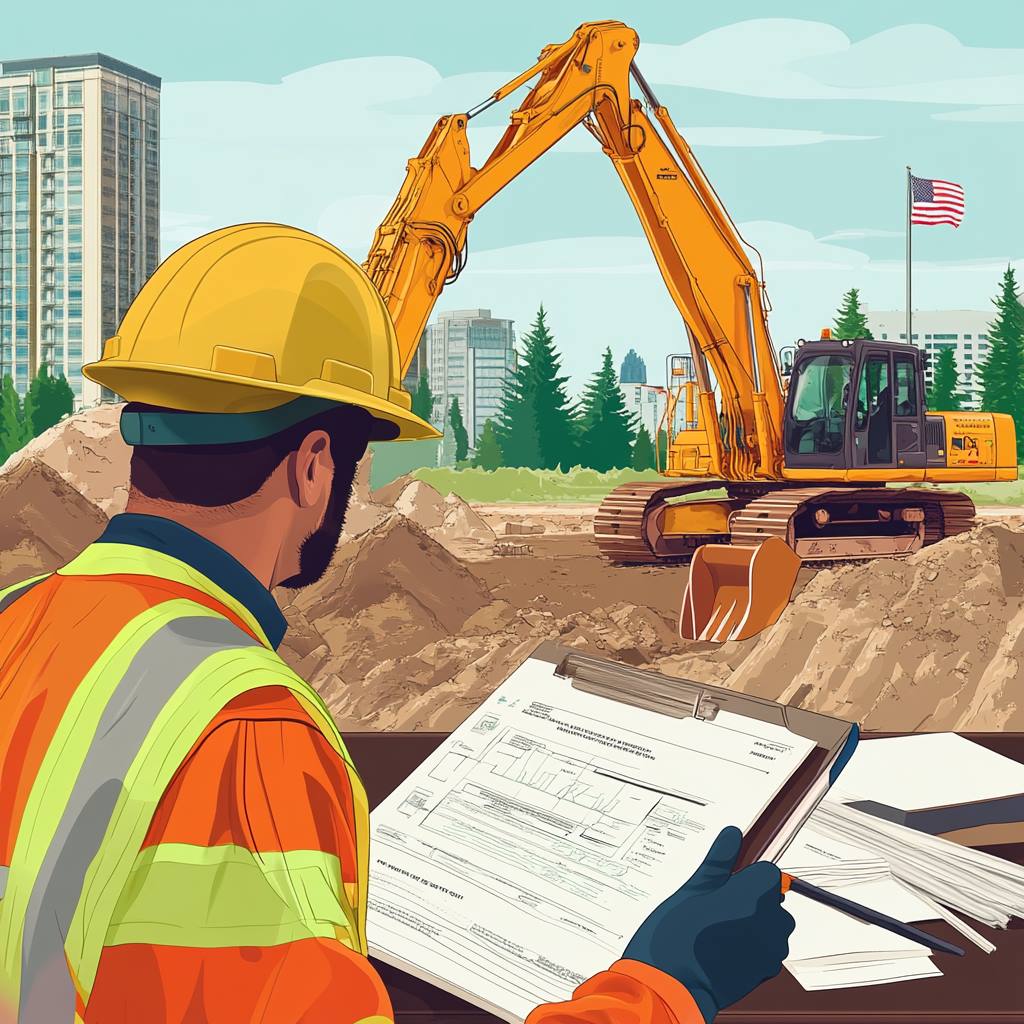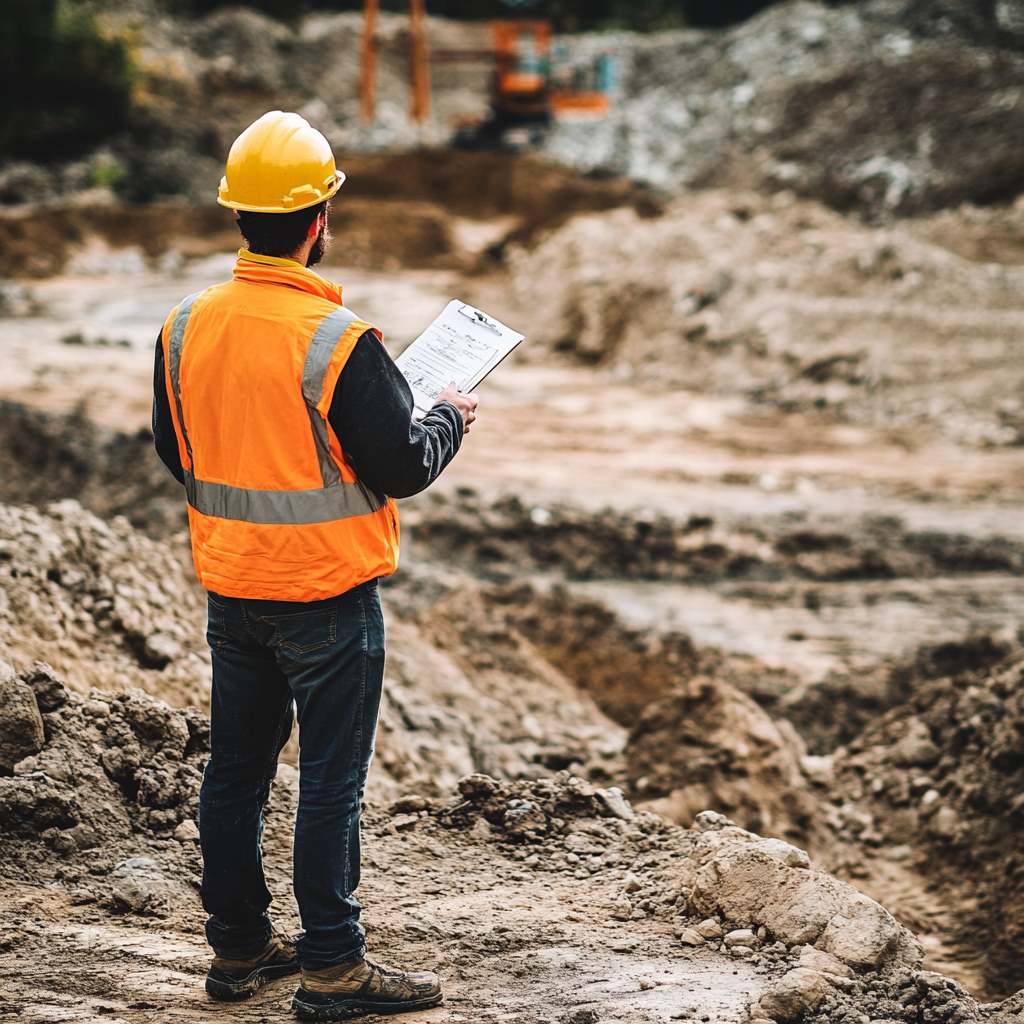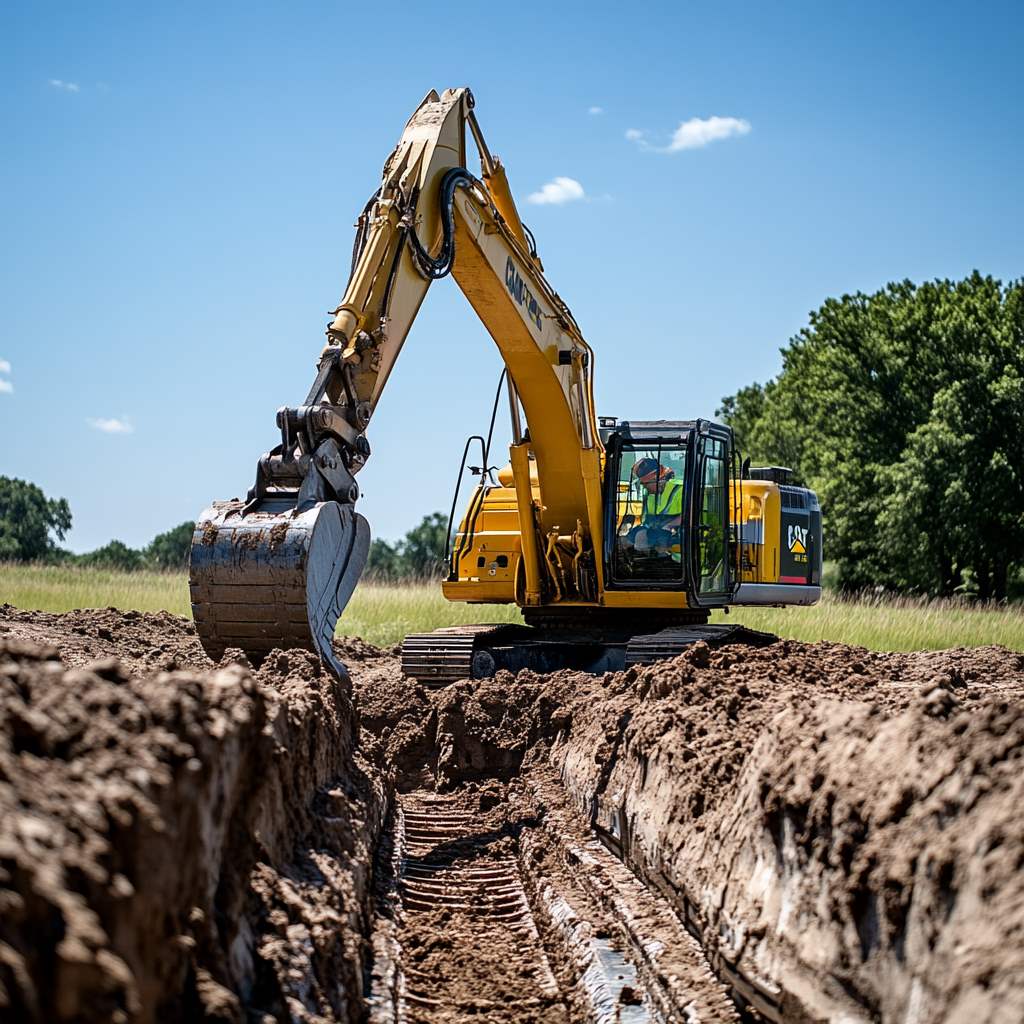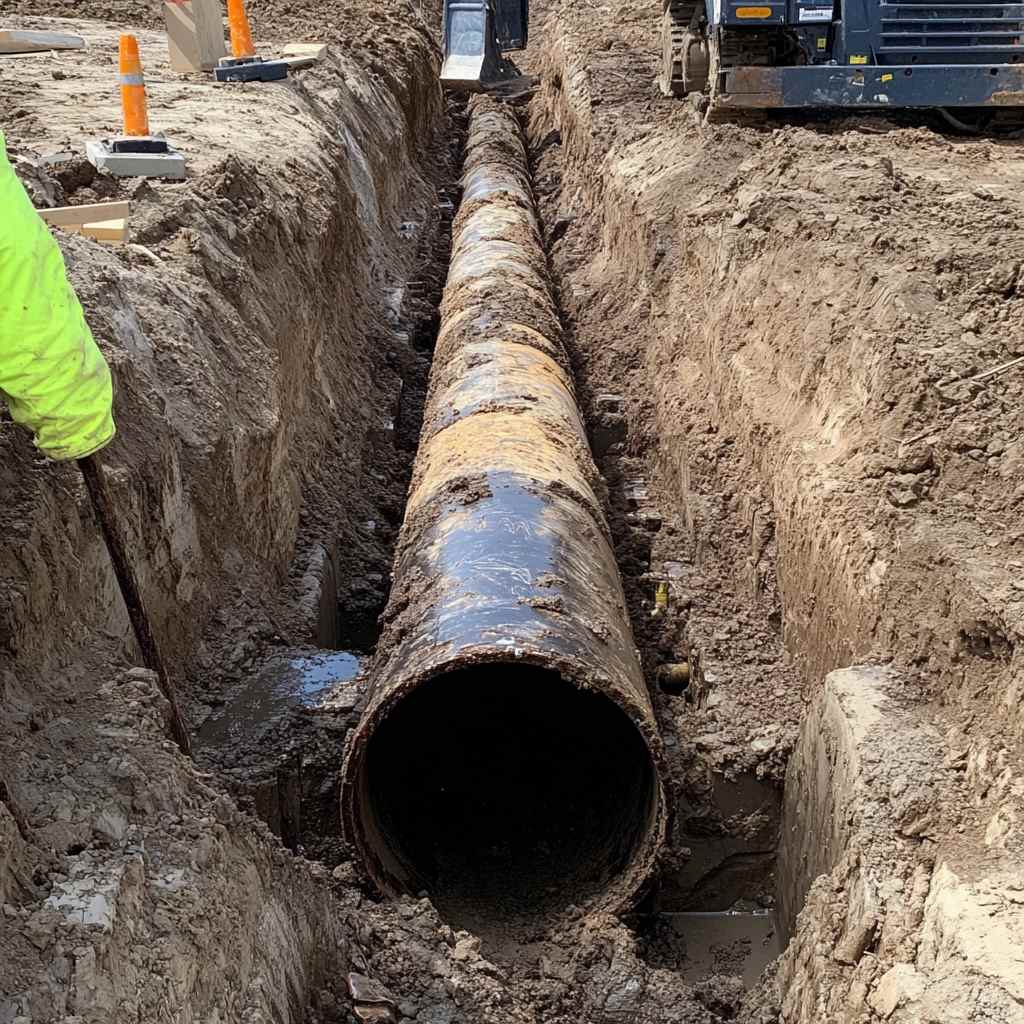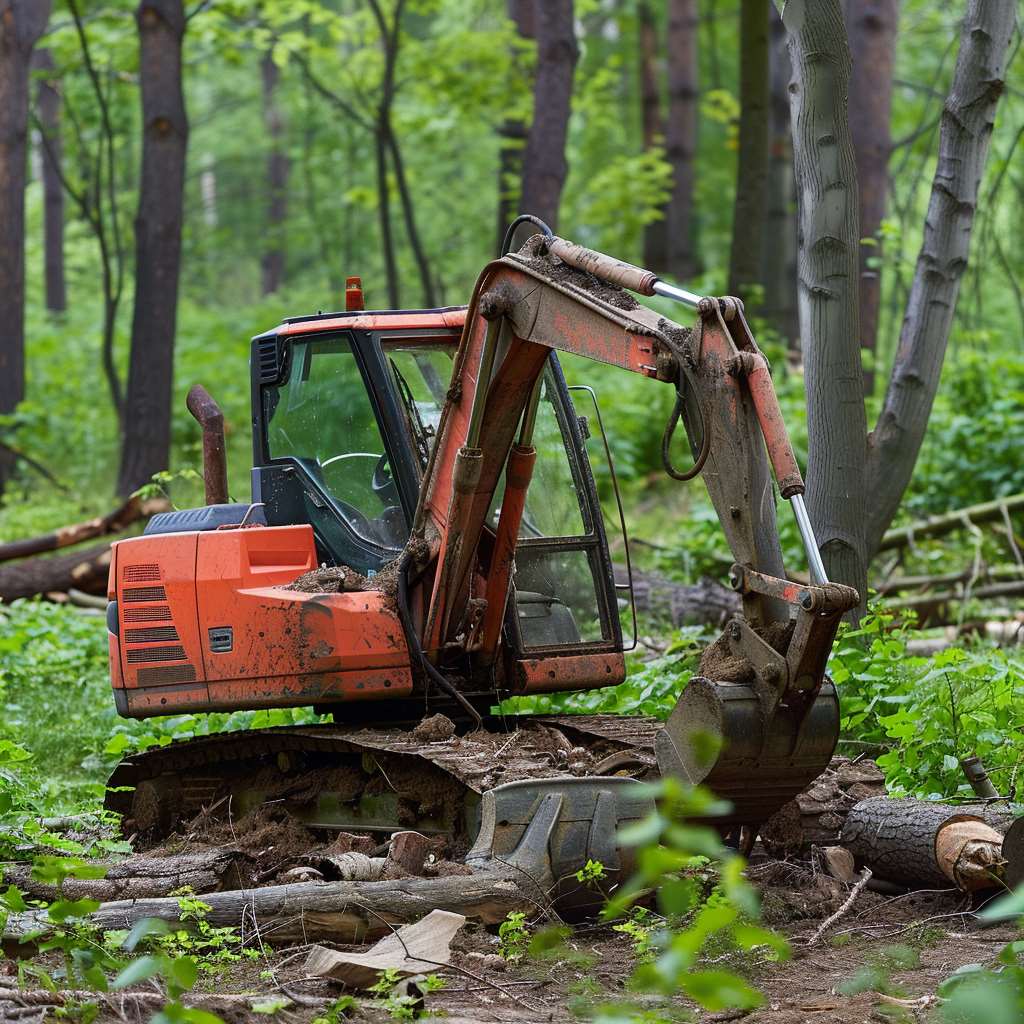Understanding the Difference Between Excavators, Diggers, and Backhoes
Choosing the right equipment can make a big difference in how smoothly a construction or excavation project goes. Some of the most common machines you’ll hear about are excavators, diggers, and backhoes. Even though people often use these names like they mean the same thing, they’re not quite interchangeable. Each one has its own design, strengths, and best-use situations, depending on the job you’re tackling.
What are Excavators?
Excavators are heavy-duty machines designed for serious digging and heavy lifting. Built with a boom, dipper (or stick), and bucket, all attached to a rotating platform known as the “house,” they’re made to handle tough jobs that other equipment can’t easily manage. The house sits on an undercarriage fitted with tracks or wheels, allowing the excavator to move across all kinds of terrain.
You’ll usually see excavators at large construction sites, mining operations, road building projects, and major landscaping jobs. They’re built for power and reach, capable of digging deep trenches, lifting heavy materials, and even handling tasks like demolition or river dredging when fitted with the right attachments.
What really sets excavators apart is the combination of their digging strength and the long reach of their arms. This allows operators to move large amounts of earth quickly and precisely, making them the go-to machine for large-scale excavation projects where both muscle and fine control are needed.
What are Diggers and Backhoes?
The term “digger” is often a colloquial term used for a backhoe. A backhoe, on the other hand, refers to a combination of a loader and a digger. It has a smaller footprint than a traditional excavator and is characterized by a digging bucket on the end of a two-part articulated arm. Backhoes are versatile and used for a variety of tasks including small demolitions, digging holes, excavation, landscaping, breaking asphalt, and paving roads.
Personally, they are my favorite Excavator.
It’s a nostalgia thing for me. My grandfather who owned his own Excavation company used his backhoe for many of his projects, and during jobs when I was being watched by him, he’d bring me into the cabin, the vibrations of it caused me to bounce around like a bean in a washing machine.
That Backhoe was the reason my family survived during tough times. So, take my word it’s a very reliable piece of machinery.
When and Why Are They Used?
Choosing between an excavator and a backhoe comes down to the size of the job and what you need to get done.
Excavators: The Heavy-Duty Choice
Excavators are built for the big jobs. You’ll want one on your site when:
Deep excavation is needed: Their long arms can reach down for deep trenching, foundations, or large pits.
Heavy lifting is part of the plan: Excavators are strong enough to move massive materials, like large sewer pipes or heavy debris.
Demolition is required: With the right attachments, larger excavators can tear down buildings efficiently.
Mining operations are underway: Excavators are a staple in mining, used to dig and haul earth or raw materials on a large scale.
Backhoes: The Jack-of-All-Trades
Backhoes are better suited when you need versatility in a smaller package. They’re often used for:
Smaller excavation projects: Perfect for residential work like digging foundations for homes or pools.
Utility work: Backhoes shine when digging trenches for water, sewer, electrical, or communication lines.
Light material transportation: The loader bucket on the front can quickly move dirt, gravel, or even clear snow from a worksite.
Each machine has its place depending on the project’s size and complexity, picking the right one can save you a lot of time, money, and extra work.
Pros and Cons of Each Machine
When deciding between an excavator and a backhoe, it helps to know the real-world trade-offs of each.
Excavators
Pros:
Excavators are built for strength and precision. Their greater digging power and longer reach make them the first choice for large-scale projects. They also come in a range of sizes, from compact models to full-sized giants, so there’s one for just about any job.
Thanks to their advanced hydraulics and control systems, excavators can perform fine, detailed work like careful grading or shaping a landscape. And when it comes to moving large amounts of earth fast (think building a reservoir, working a quarry, or clearing a massive site) few machines can match their efficiency.
Another bonus: they’re extremely adaptable. With the right attachments like hydraulic breakers, thumbs, or compaction wheels, an excavator can take on a wide range of tasks beyond just digging.
Cons:
Despite their strengths, excavators do have some drawbacks. Their size and weight make them less maneuverable in tight spaces, and transporting them isn’t always simple, you’ll often need heavy-duty trailers and permits. They also come with higher maintenance and repair costs compared to smaller machines. On crowded urban job sites, their large footprint can be a real challenge, sometimes limiting what you can actually accomplish.
Backhoes
Pros:
Backhoes are true multi-taskers. They’re easier to move around, fit into tighter spaces, and generally cost less to operate and maintain. Many can even drive on public roads to get to a job site, which cuts down on transportation time and costs.
Inside, backhoes often have more comfortable cabins and simpler controls, making them more operator-friendly, especially for jobs that take all day. They’re great for quick trenching, backfilling, and even light material handling, making them a strong choice for residential work, small construction projects, or even farm tasks.
Cons:
Backhoes, however, don’t have the same raw digging power or depth reach as excavators. If the job calls for heavy-duty work, deep excavations, or serious demolition, a backhoe won’t be enough. And on larger projects where huge volumes of material need to be moved quickly, a backhoe can fall behind, making the process slower and less efficient overall.
Licensing and Operator Requirements
Operating these heavy machines typically requires specialized training and licensing. The requirements may vary depending on the location and type of machinery. For instance, larger excavators often require more advanced training and certification due to their size and complexity.
Attachments and Customization
Both excavators and backhoes offer a range of attachments that extend their versatility.
‘Common attachments for excavators include:
- Augers
- Breakers
- Grapples
- Rippers
Backhoes can be equipped with
- Buckets
- Hammers
- Augers
- Couplers
This makes them adaptable to different tasks.
Choosing between an excavator and a backhoe depends on the specific requirements of your project. At In-Depth Excavation, they offer expert advice and a wide range of excavation services tailored to meet your needs. Whether it’s large-scale digging, trenching, or site preparation, their team of experienced professionals and a fleet of well-maintained machines are ready to tackle any challenge.
For more information about our services or to discuss your next project, visit In-Depth Excavation
Or Contact Us at our Monroe, WA office. Your hole is our goal, and we’re here to ensure your project’s success with the right equipment and expertise.
Frequently Asked Questions About Excavators and Backhoes
Excavators are larger and more powerful machines with a rotating platform, designed for heavy-duty tasks like deep excavation and demolition. Backhoes, smaller in size, combine the features of an excavator and a loader, suitable for a variety of tasks including light excavation and material handling.
While there is some overlap, their suitability depends on the task’s scale and nature. Excavators are better for larger and deeper excavations, while backhoes are more versatile and suitable for smaller-scale, diverse tasks.
Yes, both excavators and backhoes come in various sizes. Excavators range from mini versions for small spaces to large machines for massive projects. Backhoes are generally smaller but also vary in size and capacity.
Excavators can be equipped with attachments like buckets, breakers, augers, and rippers. Backhoes can also use different buckets, hammers, augers, and couplers, enhancing their versatility.
Yes, operating these machines requires specialized training and often a specific license. The requirements vary depending on the machine’s size and the local regulations.
For residential projects, backhoes offer greater versatility and maneuverability in confined spaces and are generally more cost-effective. However, they have limited reach and power compared to excavators, which can handle larger, deeper excavation tasks more efficiently.
Generally, excavators are more expensive to rent or own due to their size and capabilities. Backhoes, being smaller and less complex, tend to be more affordable in terms of rental or purchase costs and maintenance.
